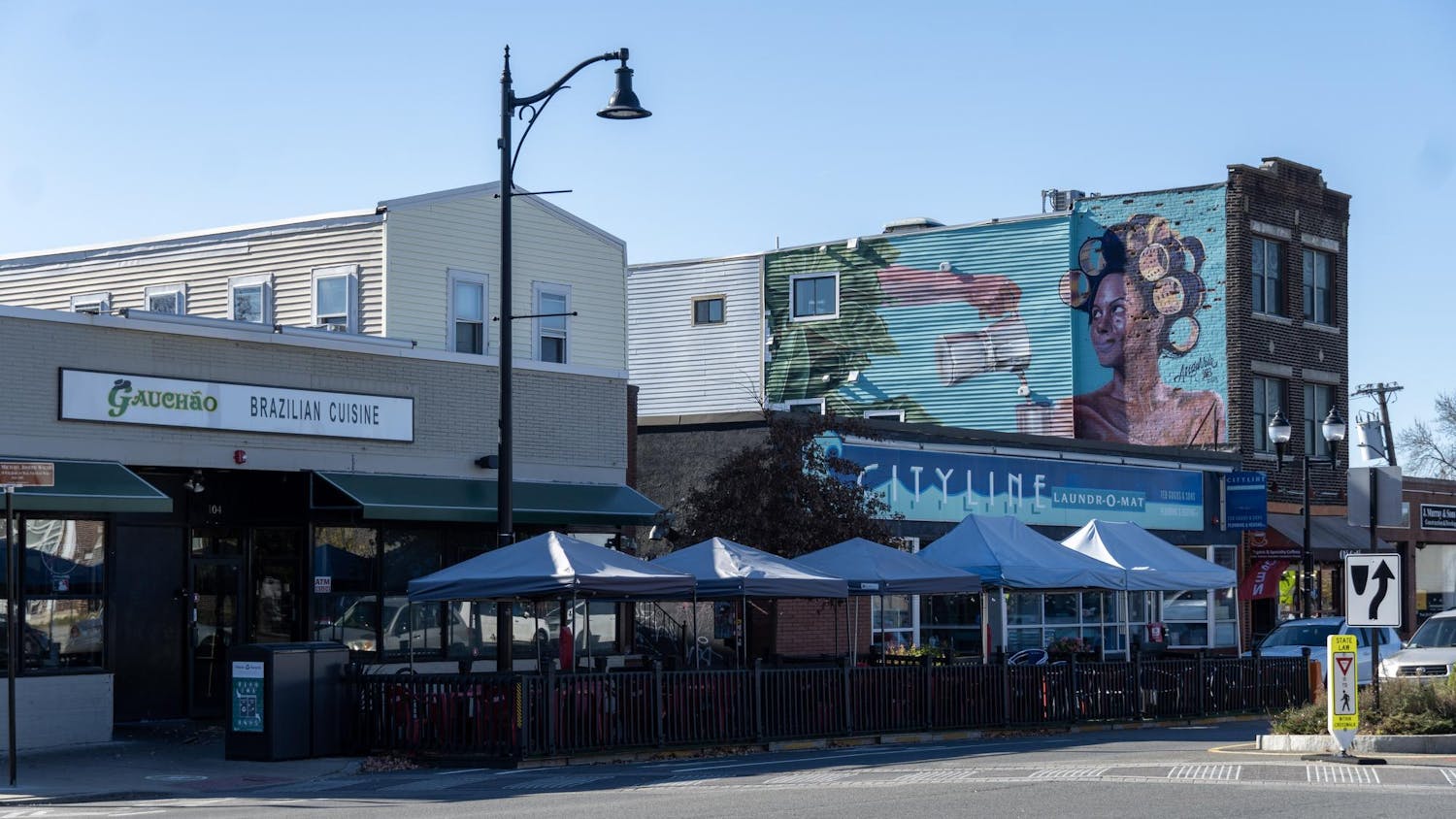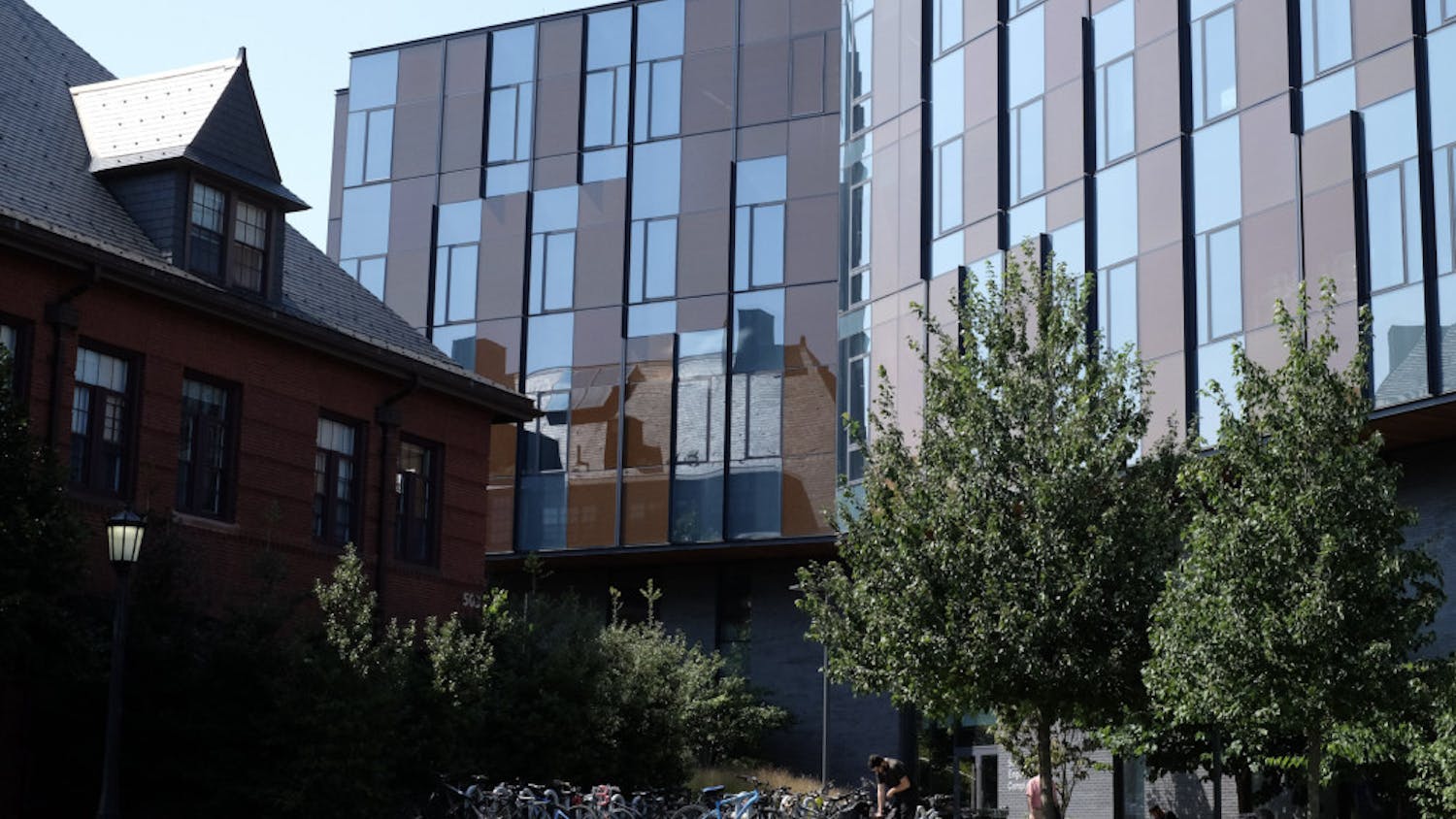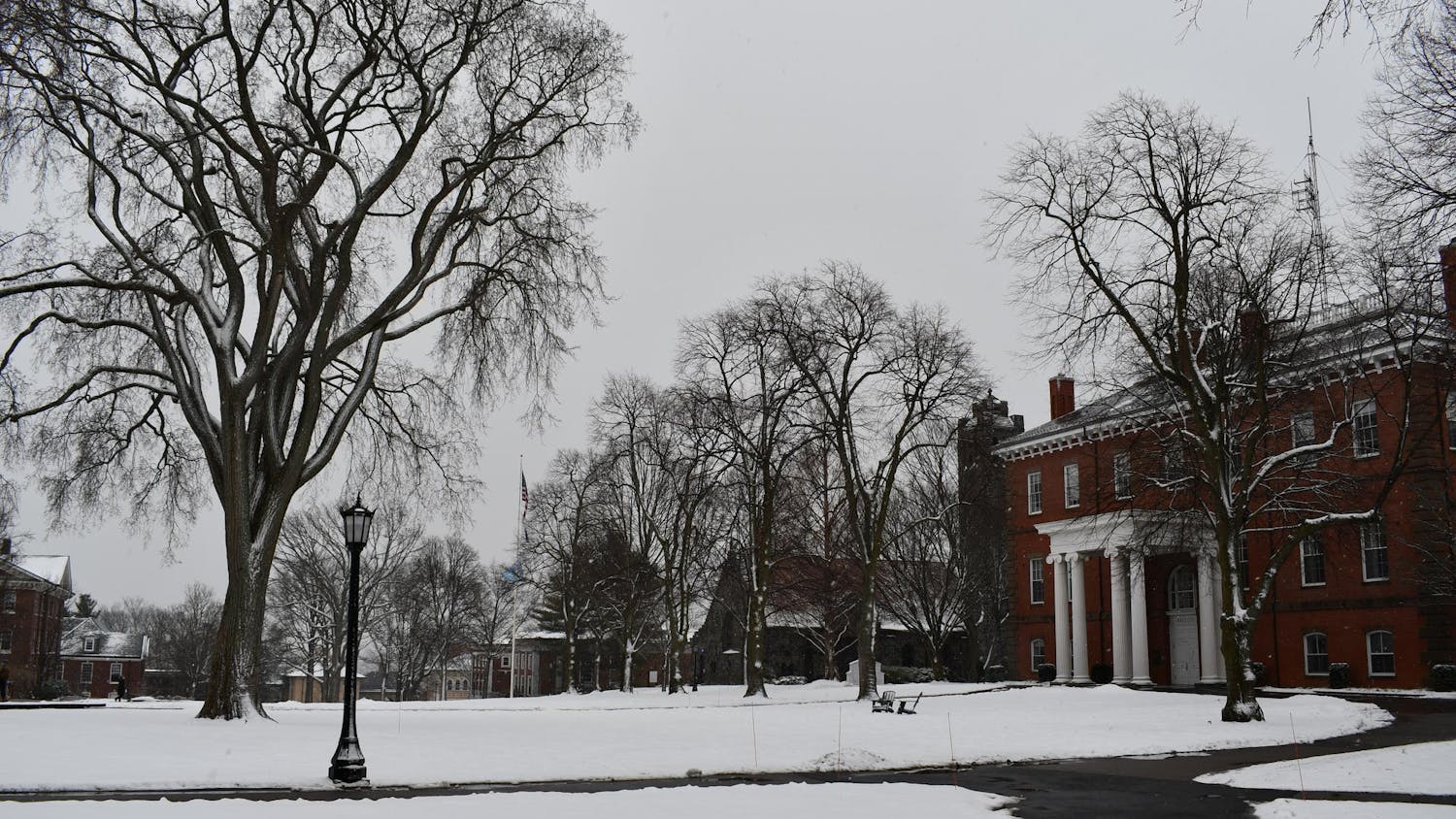For years, University President Lawrence Bacow has been greeted with enthusiastic chants of "Larry! Larry!" as he approaches the stage for the annual commencement ceremony, but with Bacow's departure this year, the change that ripples through Tufts may mean more than just a new name yelled out at graduation.
The outgoing president leaves behind a legacy of optimism and promise that began in September 2001 when Bacow first sat behind his desk in Ballou Hall. Little more than a week later, the country suffered one of the worst tragedies in its history, the effects of which touched the lives of every American, including thousands of globally aware Jumbos.
Bacow had some careful decisions to make following the Sept. 11 attacks, such as whether to adjust class schedules or cancel study abroad programs, but the president felt that keeping the community functioning normally was what was best.
"It was more, ‘How do we return the campus to a sense of normal discourse while recognizing the magnitude of what had just happened?'" Bacow said. "If the choice was to let students sit by themselves in their dormitory rooms or have them come together collectively, it seemed better to come together collectively, so that's what we had to decide."
Programs abroad continued, classes went on as usual, but classroom dialogues were forever changed. As Bacow faced this first challenge of his presidency, the community faced the challenge of getting to know its new leader.
According to Bacow, perceptions of his leadership were quite ambiguous at first.
"It takes every new president a while to find their voice," he said. "Adele and I just, we became part of the community, and people accepted us that way. I don't think I did anything differently in years two, three and four as I did in year one; it's a process of getting to know you."
As this process continued, the impact of other national events were felt on the Hill and inevitably reached Bacow's desk. In a 2003 message to the Tufts community, he encouraged those with differing views about the U.S. invasion of Iraq to voice their opinions in a respectful way.
The close election in 2004 between Sen. John Kerry (D-Mass.) and incumbent President George W. Bush engaged the usual civically minded Tufts students in the electoral process, but it was nothing compared to the election in 2008.
"One of the most memorable experiences of my 10 years here was the night of the election," Bacow said. "Students spontaneously rallying and marching up to the residential quad, and thousands of students breaking into the National Anthem, ‘God Bless America.' … Just explicit over-patriotism that I actually hadn't seen since September 11th, and I think it was really heartwarming to see."
Money, money, money
In 2006, the university announced its Beyond Boundaries capital campaign, a rigorous donor solicitation drive that is on target to reach its $1.2 billion goal this summer. At the announcement ceremony, Bacow emphasized the move toward need-blind admissions, a goal met just one year later but that would ultimately prove short-lived.
Indeed, financial issues largely characterized the latter half of economist Bacow's tenure, during which even the wealthiest institutions like Harvard University suffered damaging blows to their endowments. Though the relative size of Tufts' endowment and careful financial planning on the part of its fiduciaries and Bacow himself prevented severe losses, the university was not immune to the effects of the financial crisis. Changes in students' financial circumstances permeated all socioeconomic levels, requiring substantial increases in financial aid packages over the last two years and a suspension of the need-blind policy.
"One of my biggest regrets as president is that we're not need-blind," Bacow said. "I thought we were getting there. If the economy hadn't tanked, we would have."
Though the university may not have achieved need-blind admissions, Bacow is still pleased with the wide swath of students that Tufts accepts and enrolls every year.
"The good news is that, you know, even though we've been need-sensitive over the last couple of years, the socioeconomic profile of the class really hasn't changed. We've been able to preserve the ethnic, the racial, the socioeconomic diversity and the geographic diversity."
Bacow also pointed out that his successor, Anthony Monaco, has placed financial aid as his highest priority and that Tufts has recovered well from the downturn in 2008, boasting high financial ratings from Moody's and Standard and Poors.
Yet the economic downturn was not the institution's only money issue during Bacow's tenure. In 2007, Bacow learned of the embezzlement of student activity money by Office of Campus Life (then Office of Student Activites) Director Jodie Nealley and her co-worker, Ray Rodriguez. In two completely separate schemes, the two stole close to a combined $1 million from Tufts. Each received a two-year prison sentence in 2009.
"It was like somebody had punched me in the stomach. I was in complete disbelief that she would do something like this," Bacow said regarding Nealley's crime.
A less personal but more devastating blow to Bacow and the university came a year later when Bacow was faced with telling students and donors of Tufts' $20 million loss at the hands of Ponzi-schemer Bernard Madoff. Though Bacow insisted that all of the right questions were asked when making the investment, he admits that he felt personally responsible for the loss.
Making the tough calls
To govern is to decide, and this could not be truer for Bacow, who has been faced with tough decisions on a daily basis for the past 10 years.
"Literally every decision that comes to you as president is a tough one; the no-brainers are all taken care of before they get to you," he said. "If something comes to you, it's because it's a 51-49 choice."
Deciding what is best for the university in the long term, like the president's recent decision to end the Naked Quad Run, may not always be what students or faculty want to hear, but in Bacow's eyes, it sometimes must be done.
Some of the particularly difficult decisions that Bacow has faced have resulted from diversity and tolerance issues like the April 9, 2009, bias incident, in which a heated fight broke out between a white student and Asian-Americans in Lewis Hall. Two years earlier, The Primary Source published two articles that offended other ethnic communities at Tufts. One implied that Muslims were violent, and the other criticized affirmative action in such a way that suggested African-Americans were academically unqualified for admission to Tufts.
In both cases, pressure mounted on all sides for consequences and administrative action, and in both cases, Bacow favored community participation and dialogue, standing by the principles of free speech and expression but condemning intolerance. He commissioned in 2008 a special task force designed to tackle this very goal — crafting a university-wide policy on freedom of expression — and supported the policy that was approved by the Board of Trustees a year later.
"I've always tried to do the right thing and not everybody's agreed. That's why it's a university," he said.
The memories
Bacow is excited to return to teaching next year as president-in-residence at Harvard's Graduate School of Education, and while he claims that four years from now, those of the Monaco era will look back and say "Larry who?," the mark he has left at Tufts suggests otherwise. Many of the connections and friendships he has made will far outlast his time here, and donors, administrators, coaches and even student advisees that he's consistently taken on every other year all hold a special place in his heart, he said.
In terms of the less quantifiable legacies, Bacow said he can feel a sense of pride, institutional integrity and innovation that have all grown under his watch.
"I remember talking to an alumna in Hong Kong who said that in the past when she told somebody that she went to Tufts and they would say, ‘Where's that?' she thought that reflected poorly on Tufts," Bacow said. "She said, these days if I meet somebody and I tell them I went to Tufts and they say, ‘Where's that?' she thinks it reflects poorly on them."
These sorts of encounters reflect how Tufts' prestige and general profile have grown over the past decade, he said. Though there is no real way to measure this, its results, he believes, have been palpable both on and off the Hill.
"As we've become better known, I think it makes it that much easier for our graduates to go out and find jobs, to make connections, but at the same time as that's happened, it's made it much easier for us to recruit students, for faculty to secure resources, for us to recruit people from around the world," he said.
Indeed, this growth in prestige was one of Bacow's principal aspirations for Tufts, even before he took office. He feels that the advancements made under his watch and the flourishing of Tufts as a prestigious university will continue to benefit the community for years to come, particularly with a new leader at the helm.
"One reason for me to step aside is … to give the institution, as well as the new president, the idea to take a fresh look at the challenges as well as the opportunities with a new set of eyes," he said.





